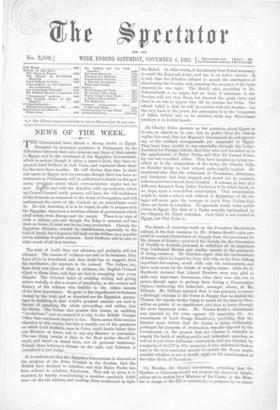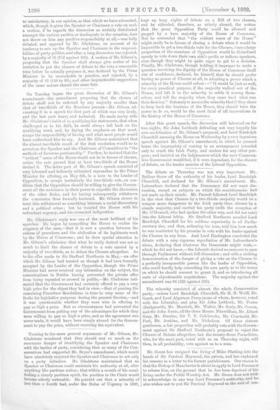On Monday, Mr. Bryce's amendment, providing that the Speaker or
Chairman should not propose the closure of debate, unless set in motion by a Minister of the Crown or the Mem- ber in charge of the Bill or resolution,—a proposal by no means
so satisfactory, in our opinion, as that which we have advocated, which, though it gives the Speaker or Chairman a veto on such a motion, if he regards the discussion as unfairly distributed amongst the various parties, or inadequate to the occasion, does not throw on him any positive responsibility at all,—was fully debated, and opposed by Mr. Gladstone, on account of its tendency to mix up the Speaker and Chairman in the responsi- bilities of party politics, and after a long discussion was rejected, by a majority of 52 (152 against 100). A motion of Mr. Gibson's, proposing that the Speaker shall always give notice of his intention to put the closure of debate to the vote a reasonable time before he actually proposes it, was declared by the Prime Minister to be unworkable in practice, and rejected, by a majority of 61 (149 to 88); and other impracticable suggestions of the same nature shared the same fate.



































 Previous page
Previous page